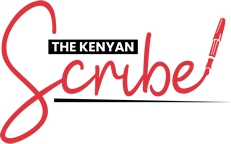 In the world of job interviews, first impressions matter significantly. Your attire, grooming, and overall presentation can play a pivotal role in shaping how potential employers perceive you.
In the world of job interviews, first impressions matter significantly. Your attire, grooming, and overall presentation can play a pivotal role in shaping how potential employers perceive you.
Dressing appropriately for an interview is not merely a matter of fashion; it’s a strategic choice that reflects your professionalism, respect for the opportunity, and understanding of the company culture.
You need to ensure that you’re impeccably dressed and ready to make a lasting impression on your potential employers. Whether you’re aiming for a corporate position demanding a traditional suit or a creative role with a more relaxed dress code, your outfit should help you secure the desired job.
- Research the Company
Before you even think about what to wear, it’s crucial to understand the company’s culture and dress code. Research the organization online, read about its values, and ask current or former employees about their workplace attire.
Knowing the company’s norms will help you tailor your outfit appropriately and show that you’ve done your homework.
- Wear a Suit (if appropriate)
The classic suit remains a go-to choice for formal interviews and corporate environments. A well-tailored suit exudes professionalism and can instantly command respect. However, assessing whether a suit is suitable for the specific job and industry you’re interviewing for is essential.
A suit might be too formal in some creative or tech industries, so understanding the company’s dress expectations is key.
- Dress Shirt/Blouse
The shirt or blouse you choose to wear underneath your suit jacket plays a pivotal role in your overall look. Opt for a clean, well-pressed shirt or blouse that complements your suit color.
Solid colors or subtle patterns are safe choices, as they convey professionalism without being distracting.
- Tie (for Men)
For male candidates, the tie is a classic accessory that can add a touch of elegance to your outfit. When selecting a tie, stick to conservative choices like solid colors or subtle patterns. The tie should harmonize with your suit and shirt, creating a polished and coordinated appearance.
- Footwear
Your choice of footwear is often underestimated but is a crucial element of your outfit. Clean, polished, closed-toe shoes in a style that matches your overall look are a must. Avoid overly casual or flashy footwear, which can detract from your professional image.
- Grooming
Your grooming and personal hygiene are as important as your attire. Ensure your hair is neatly styled and clean. Maintain good oral hygiene, and consider trimming facial hair if necessary.
Avoid using strong fragrances, as they can be overwhelming in close quarters.
- Accessories
Less is often more when it comes to accessories for interviews. Minimalistic choices like a simple wristwatch and stud earrings (for those who wear them) can add a touch of sophistication without being distracting.
Avoid large, flashy jewelry or accessories that might divert attention from your qualifications.
- Briefcase or Portfolio
Carrying a professional-looking briefcase or portfolio is not just a practical choice; it’s also a visual symbol of your preparedness. It’s a place to keep copies of your resume, notes, and any relevant documents organized and accessible during the interview.
- Nails
Don’t overlook the importance of well-maintained nails. Trim them neatly and ensure they are clean. Attention to detail in your grooming routine, including nail care, reflects positively on your overall presentation.
- Practice Good Posture
Your outfit is just one aspect of your overall appearance. Confidence and good posture are equally vital. Walking into the interview room with self-assured body language conveys professionalism and poise.
Dressing well for an interview is a multi-faceted process that involves selecting appropriate clothing and paying attention to grooming, accessories, and posture.
By understanding the company’s culture and dressing accordingly, you’ll have the confidence to make a strong, positive first impression during your interview.



